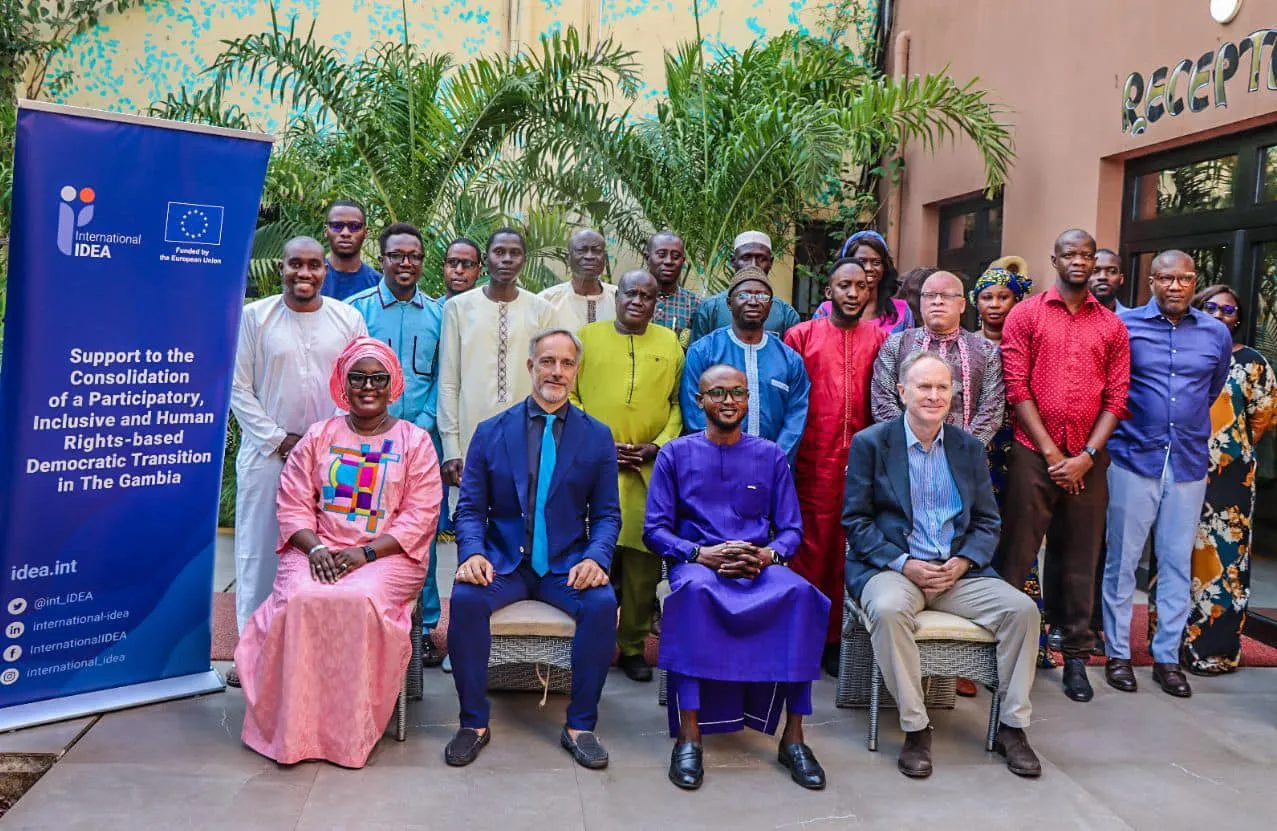The European Union and International IDEA boost The Gambia National Assembly’s Communication Unit

In the framework of the EU-CODE Project, following the development of a 3-year Communication Strategy, this training focused on enhancing the skills of staff from the Communications, Information Communication Technology, and Press Unit of the National Assembly.
EU Deputy Head of Mission Raphaël Brigandi stated: “For the National Assembly, as an institution representing directly the citizens, an institution that proposes and votes laws on their behalf and for their benefit, the importance of proper and clear communication cannot be underestimated. Properly communicating is actually at the heart of policymaking and I am delighted that through the support of the EU-Code project, we are able to provide a well-rounded, 360-degree training that addresses key aspects of communication both in terms of technical skills and content production.”
Ms. Jainaba Faye, Head of the International IDEA Country Office, emphasized the significance of building the participants' capacity to create awareness about the National Assembly and its functions, promote positive change in perceptions, beliefs, behaviours, and attitudes towards the National Assembly, and, most importantly, project the National Assembly as a trustworthy and transparent institution.
“Given the rapidly evolving media landscape, with social media platforms and digital communication taking on an increasingly dominant role. To be effective, as parliamentary communications officers, you must stay ahead of these trends and adapt new strategies”, Jainaba said.
Mr. Kalipha Mbye, the Clerk of The National Assembly encouraged participants to apply new strategies in their daily work and explore avenues for innovation. He reaffirmed his open-door policy for staff seeking further development opportunities and expressed gratitude to the European Union and International IDEA for their continued support in building the capacity of the National Assembly.
The starting point of the training has been how to best operationalize the new National Assembly’s communication strategy. To this end, the training focused on equipping participants with a deeper understanding of the societal context for their communication activities, while building their abilities in effective spoken, written, visual, and interactive communication. Practical training through hands-on exercises, and insights of best practices on content creation, camera operation/handling, photo and video editing, audio production and management, as well as control room management were also incorporated in the training.
The activity as part of the EU-CODE project underscores the European Union and International IDEA’s commitment to strengthening democratic institutions like the National Assembly with the needed competencies to promote transparency, inclusion, and effective information sharing.




